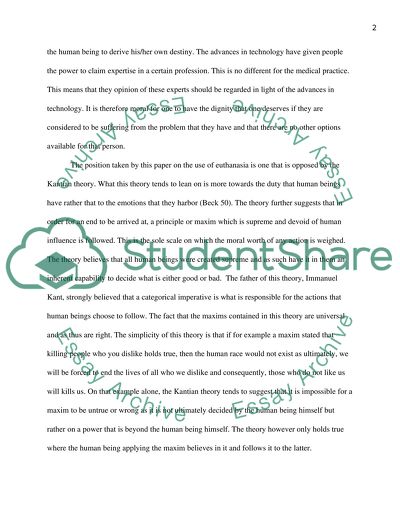Cite this document
(“Euthanasia and Whether it is Morally Justified and Hence Ethically Essay”, n.d.)
Euthanasia and Whether it is Morally Justified and Hence Ethically Essay. Retrieved from https://studentshare.org/philosophy/1438806-ethics-paper
Euthanasia and Whether it is Morally Justified and Hence Ethically Essay. Retrieved from https://studentshare.org/philosophy/1438806-ethics-paper
(Euthanasia and Whether It Is Morally Justified and Hence Ethically Essay)
Euthanasia and Whether It Is Morally Justified and Hence Ethically Essay. https://studentshare.org/philosophy/1438806-ethics-paper.
Euthanasia and Whether It Is Morally Justified and Hence Ethically Essay. https://studentshare.org/philosophy/1438806-ethics-paper.
“Euthanasia and Whether It Is Morally Justified and Hence Ethically Essay”, n.d. https://studentshare.org/philosophy/1438806-ethics-paper.


